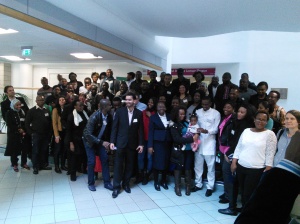 When two or more parties are at odds with one another, the urge to live in a more peaceful world dictates that we step in to find a resolution. But sometimes, it also turns into a test of credibility for the fortunate or unfortunate in-between man or woman to the point that the negotiator engages in brokering a deal, any deal, at all cost!
When two or more parties are at odds with one another, the urge to live in a more peaceful world dictates that we step in to find a resolution. But sometimes, it also turns into a test of credibility for the fortunate or unfortunate in-between man or woman to the point that the negotiator engages in brokering a deal, any deal, at all cost!
‘Bad compromises are better than long drawn conflicts’ some say! Believe that only if you are not the former UN secretary general Kofi Annan. Tasked to resolve the Syrian conflict at some point, the man emerged resolved not to resolve the crisis. For most people, his giving up might have come across as a sign of weakness, but I take the opposite view. Kofi Annan’s example set a new approach to conflict resolution; that which does not seek to resolve a conflict for its own sake or that of the negotiator!
Resolving conflicts should aim to restore the truth of the matter, the un-compromised truth! It can be said that conflict resolution in Africa are yet to adopt this sort of approach and as a result most compromises have in fact compromised people’s aspirations and the truth as found in a people’s culture, beliefs and most importantly legally binding constitutions.
The patterns of behaviour of certain (African) leaders continue to show signs of escalation of already bad situations. They engage into further breaches of basic rights with the hope/knowledge that when the ‘conflict resolution time’ comes, all it will take is to right a few wrong things (free that extra prisoner, open that extra radio station that was shut down) and we will be back to the position we were before!
Yes, you’ve got to start somewhere and half a loaf is better than nothing etc. However, ‘half freedom is not freedom!’ So, on your mark, get set, go and compromise more truths, more laws and more constitutions but remember the bread and butter of conflict resolution lies in the courage you have to seek to restore the truth, only the truth, nothing but the truth (in national conflicts that means sticking to the rule of law and constitutions).
